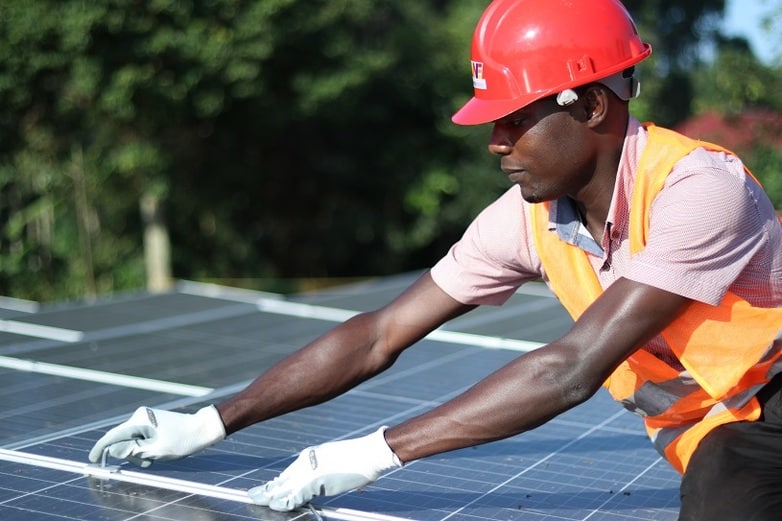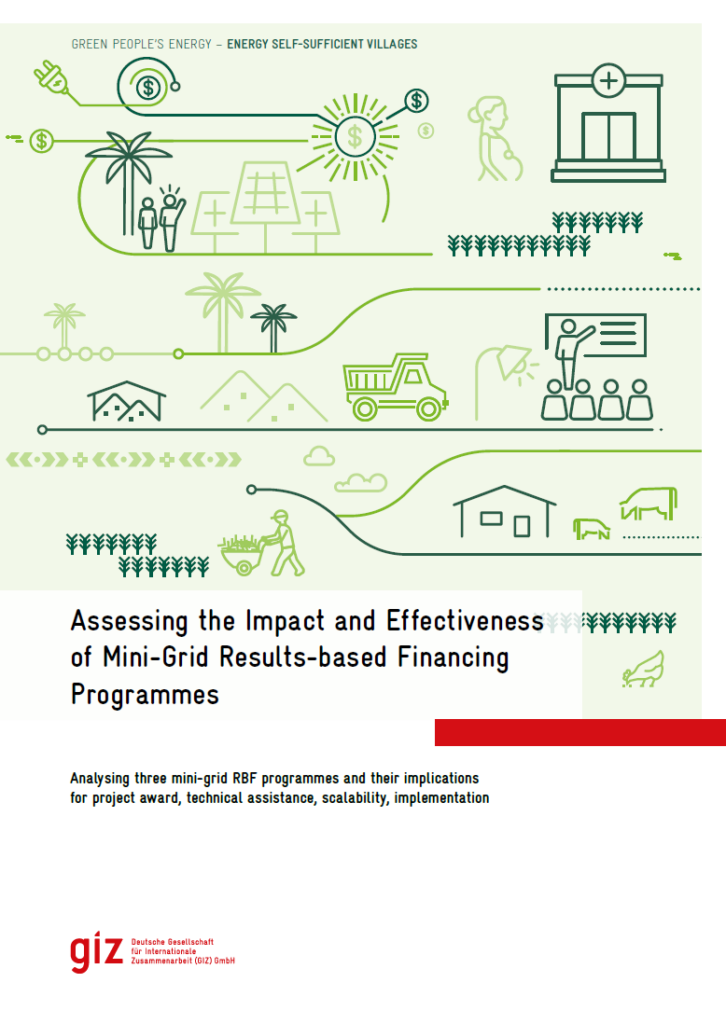A new study assesses the impact and effectiveness of results-based financing (RBF) projects and derives key recommendations for setting up RBF mechanisms in mini-grid programmes. The study was led by the Green People’s Energy for Africa (GBE), taps into approaches by the Energy Autonomous Villages initiative funded by the German Federal Ministry for Economic Development and Cooperation (BMZ), and facilitated through a Leveraged Partnership by GET.transform.
RBF is a popular means of increasing the effectiveness of public financing in a wide range of markets. Disbursing funds upon achievement of results, like number of systems installed or households connected, encourages innovation and flexibility, which can result in quicker implementation times and lower costs. This is meant to benefit all partners involved.
With regards to RBF for mini-grids, the experiences are still comparatively nascent. Governments and development partners are continuously adapting their approaches and still learning how best to design RBF programmes, especially in less developed markets.
The study has investigated best practices for future RBF mini-grid projects and sheds light on the most important lessons learned. The analysis shows that the choice of a grant disbursement method should be made after in-depth examination of the framework conditions and market situation of the country concerned and in close consultation with the authorities. A one-size-fits-all approach does not work in this context. Another key finding is that the main components of the procurement mechanisms to be chosen are prepared and accompanied by targeted technical assistance measures.
Download the full study at: gruene-buergerenergie.de



